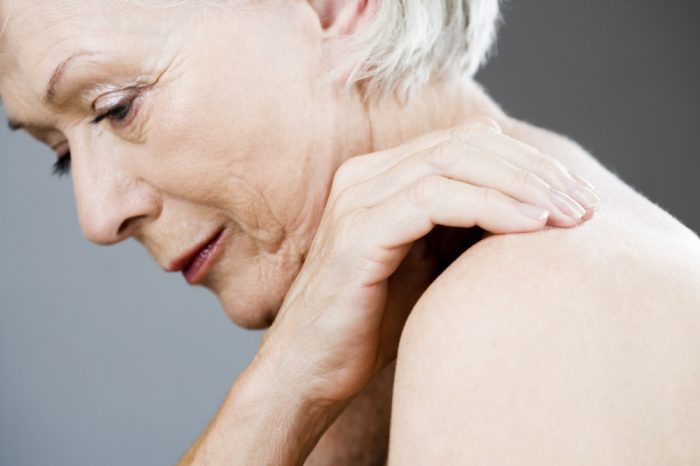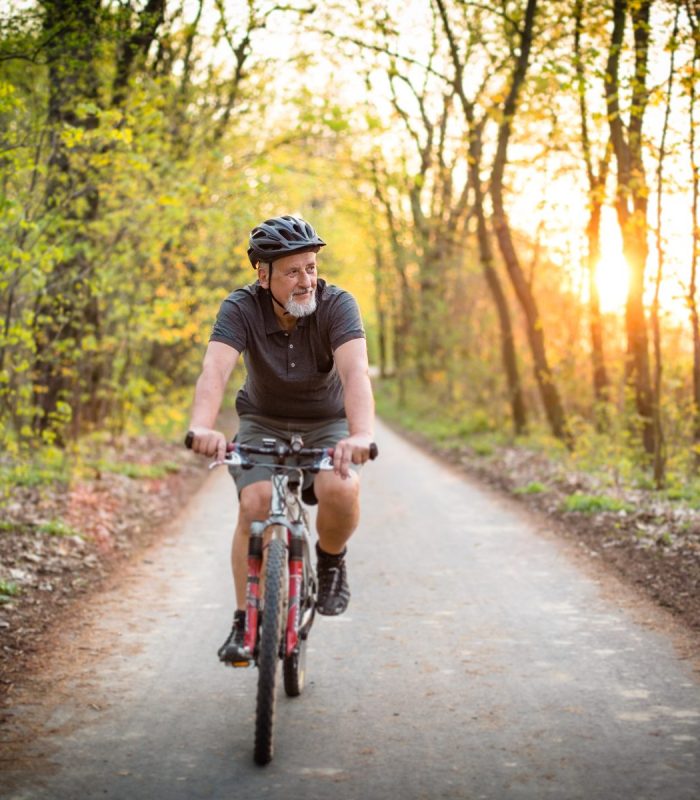Many use the herb as a sleep aid, but recent studies indicate that CBD likely increases alertness.
In survey after survey, insomnia ranks as one of the top reasons for medical cannabis consumption. For example, in 2014, as detailed in the Hawaii Journal of Medicine and Public Health, a patient survey found forty five percent of patients reported fighting insomnia as a benefit to medical cannabis.[1]Webb, C. W., & Webb, S. M. (2014). Therapeutic benefits of cannabis: a patient survey. Hawai’i journal of medicine & public health : a journal of Asia Pacific Medicine & Public … Continue reading Another survey, from the same year in the International Journal of Drug Policy, discovered fifty seven percent of consumers used the plant to help aid sleeping.
Cannabis is clearly a go-to resource for patients seeking a better night’s sleep. The cannabis industry is taking note, with many strains marketed for their sedative and relaxing qualities. Accurately or not, makers of cannabidiol (CBD) frequently market their products as a sleep aid as well.
Is cannabis useful for sleep, and if so, what strains or chemovars are best? The truth is – the verdict on cannabis for sleep is still out.
Are you Sleeping? CBD May Keep You Awake
Using cannabinoids for sleep may not be as helpful as patients believe. As is often the case with cannabis medicine, the research so far paints a very complicated picture. Are you sleeping because of the sedative effects of cannabis? More importantly, are these effects actually detrimental to sleep? Here’s what the research says.
In 2004, the Journal of Clinical Psychopharmacology published a paper entitled “Effect of D-9-Tetrahydrocannabinol and Cannabidiol on Nocturnal Sleep and Early-Morning Behavior in Young Adults.” The authors examined the effects of both THC and CBD on sleep and the impacts each cannabinoid had on alertness the next day.
There were eight participants in the study, and the researchers designed it as a “double-blind and placebo-controlled with a four-way crossover.” Although small in scope, this study is well-controlled. Participants received various doses of THC, CBD, or a combination of both. Doses ranged from 5 mg to 15 mg, and all were provided via oral spray approximately thirty minutes before bedtime.

Are you Sleeping Better With Cannabis?
After analysis of the data, the authors made many profound discoveries. First, higher doses of THC did not impact sleep, although higher doses did impact alertness the following morning. Secondly, CBD dosed in combination with THC disrupted sleep, and at higher doses (15 mg), increased awake times. Unfortunately, this study did not examine CBD as a stand-alone.
Based on the outcomes, the paper concluded, “THC would appear to be a sedative compound, whereas CBD would appear to have some alerting properties.” The authors went so far as to propose CBD as a valuable addition to the clinical consumption of THC to diminish that compound’s sedative effects.
A study published in FEBS Letters (2006, on rats confirmed the complicated nature of CBD for sleep. The paper “Cannabidiol, a Constituent of Cannabis sativa, Modulates Sleep in Rats,” reported the effects of CBD on lab rats during lights-on and lights-off period. In the lights-on period, the animals became more alert. However, the authors reported, “No changes on sleep were observed during the dark phase.”[2]Murillo-Rodríguez, E., Millán-Aldaco, D., Palomero-Rivero, M., Mechoulam, R., & Drucker-Colín, R. (2006). Cannabidiol, a constituent ofCannabis sativa, modulates sleep in rats. FEBS Letters, … Continue reading
A Comparison of Cannabinoids for Sleep, It’s Complicated
Are you sleeping because of THC, or are you sleeping because of CBD? At the moment, experts are not entirely sure. While many studies are looking at cannabinoids for sleep, few are well-controlled, and even fewer separate doses of cannabis into the individual cannabinoids.
Furthermore, researchers believe most (if not all) cannabinoids have a biphasic effect. A low dose delivers certain benefits, and a higher dose can reverse those benefits. For example, a low dose of THC is relaxing and stress relieving, but a high dose may provoke anxiety and paranoia. The same is true when it comes to sleep.
According to the 2004 study above, the increase in wakefulness only occurred with the higher dose of 15 mg THC in combination with 15 mg of CBD. The researchers did not report the same results with lower doses of THC:CBD, nor with THC alone. These findings “suggest that CBD may have an alerting effect that is dependent on dose.”[3]Nicholson, A.N., Turner, C., Stone, B.M., & Robson, P.J. (2004). Effect of Delta-9-tetrahydrocannabinol and cannabidiol on nocturnal sleep and early-morning behavior in young adults. Journal of … Continue reading
Pros and Cons of THC for Sleep
Higher continuous doses of THC may be beneficial to a good night’s sleep, but have adverse impacts on alertness the following day. In 2014, David A. Gorelick MD, Ph.D. et al. published a fascinating report in the American Journal of Addictions (2013). It was called, “Around‐the‐Clock Oral THC Effects on Sleep in Male Chronic Daily Cannabis Smokers.”[4]Gorelick, D. A., Goodwin, R. S., Schwilke, E., Schroeder, J. R., Schwope, D. M., Kelly, D. L., … Huestis, M. A. (2013). Around-the-clock oral THC effects on sleep in male chronic daily cannabis … Continue reading
They worked with chronic cannabis consumers (all men), at a sleep clinic. The researchers administered between 40 to 120 mg of THC daily to each participant while monitoring their sleep patterns. An average dose for most consumers is roughly 10 mg. Therefore 40 mg a day is technically a medium to high dose — especially day after day.
Upon analysis of the results, the authors found higher levels of THC in the participant’s blood work “were significantly associated with shorter sleep latency, less difficulty falling asleep, and more daytime sleep the following day.” So once again, higher THC seemed to improve sleep, but also increase grogginess.

How to Correctly Consume Cannabinoids for Sleep
As a patient, how can you consume cannabis for sleep — to get the results you want? With no federal oversight, nor advanced clinical trials, you’ll quickly find out there are no suggested serving sizes on how to consume cannabis for sleep.
With that caveat out of the way, there are a few basic conclusions we can draw from the scientific literature.
- Higher doses of THC (15 mg or more) seem to improve sleep but may impact function the following day.
- CBD does increase wakefulness at certain doses, but the research doesn’t provide much direction on dosage.
- There may be a benefit to combining THC with CBD to promote sleep and reduce the ‘hangover’ the following morning.
- Overall, THC is likely to be safer than a pharmaceutical sleep aid.
As a patient, you will want to conduct careful self-experimentation on dose, timing, and chemovar selection. If possible, seek the guidance of a qualified healthcare professional with experience working with medical cannabis. Always start with small doses and slowly titrate up until you achieve the desired effects without an adverse reaction.
References






Jeanne Moore
As an adult with severe epilepsy and an inoperable brain tumor, I find your study of 8 people grossly inadequate to come to any conclusions at all about THC and CBD. I use both in treating seizures and pain. Both help me sleep better at night. I use an indica strain for sleep and a sativa during the day. I use CBD oil twice daily and am now off all opiates, hormones and nausea meds. I sleep better, feel better and my seizure activity is minimal since including the cbd oil into my daily routine.
Jennifer Grant
Thank you for joining the conversation, Jeanne. And I’m really happy to hear that CBD is helping you sleep. Helps me too. This article is about one study completed by Nicholson et al., not RxLeaf. And the age demographic is limited as well (21 to 34).So, yes, the results are from a small sample. Still worth a talking point. Many patients report that CBD alone will energize them instead of helping them sleep. We have a long way to go before science knows the why and how of cannabis medicine.